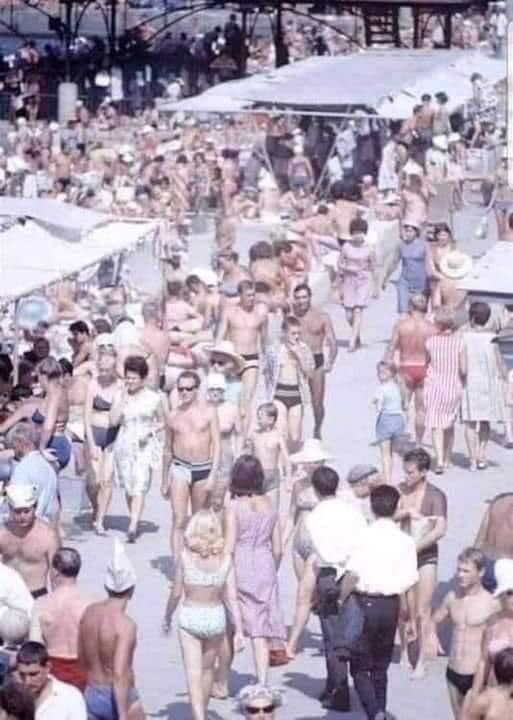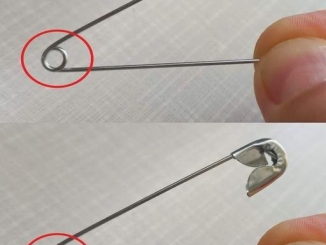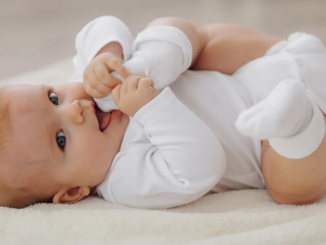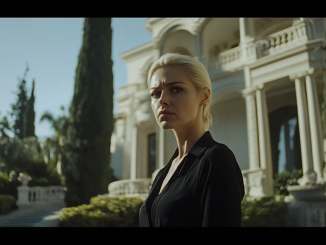
The Transformation of Our Bodies and Diets
In the 1970s, a visit to the beach was a showcase of lean, active bodies. People of all ages enjoyed the sun, surf, and sand with a level of fitness that seemed effortless. Fast forward to today, and the scene has drastically changed. The prevalence of overweight and obese individuals has skyrocketed, painting a stark contrast to the svelte figures of the past. This shift prompts us to examine the role of the food industry in this dramatic transformation.

The 1970s: A Different Era of Eating
During the 70s, the typical diet was markedly different from what we see today. Meals were often home-cooked, with fresh ingredients forming the backbone of family dinners. Processed foods were available but not ubiquitous. Fast food chains were fewer, and eating out was considered a treat rather than a regular occurrence. Portion sizes were smaller, and sugary snacks were less prevalent in households.
Physical activity also played a significant role in the lives of people in the 70s. Without the convenience of digital entertainment, children and adults alike spent more time outdoors, engaging in physical activities. Walking, cycling, and participating in sports were common pastimes.
The Rise of Processed Foods
The landscape began to change with the rise of processed foods and fast food chains in the late 20th century. The food industry, driven by profit, began to prioritize convenience and shelf-life over nutritional value. High-fructose corn syrup, hydrogenated oils, and an array of artificial additives became staples in many foods. These ingredients made food cheaper and more accessible but also less healthy.
Marketing strategies targeted at children and busy adults further entrenched these unhealthy eating habits. Fast food advertisements promised quick, tasty meals at low prices, and snack companies created products that were hard to resist due to their high sugar and salt content. This aggressive marketing, combined with the convenience of ready-made meals, led to a significant increase in the consumption of unhealthy foods.
The Impact on Public Health
The consequences of these changes in diet have been profound. Rates of obesity have soared, bringing with them a host of health problems, including diabetes, heart disease, and various forms of cancer. According to the World Health Organization, worldwide obesity has nearly tripled since 1975. In many countries, the number of overweight children and adolescents has increased tenfold over the same period.
The food industry’s influence extends beyond what we eat to how we perceive food. Portion sizes have increased dramatically, and the notion of what constitutes a normal serving has become distorted. Additionally, the emphasis on convenience has led to a decline in cooking skills, with many people relying heavily on pre-packaged meals and fast food.
Moving Towards a Healthier Future
Addressing this issue requires a multifaceted approach. Public awareness campaigns can educate people about the dangers of processed foods and the benefits of a balanced diet. Governments can implement policies to regulate the marketing of unhealthy foods, particularly to children, and promote healthier options. Schools can play a crucial role by providing nutritious meals and incorporating nutrition education into their curricula.
On an individual level, making a conscious effort to prepare meals from fresh ingredients, controlling portion sizes, and increasing physical activity can help counteract the damage done by the food industry. Embracing a lifestyle reminiscent of the 70s, where home-cooked meals and outdoor activities were the norm, can pave the way towards a healthier society.
I Visited My Pregnant Sister, and When I Saw How Her Husband Treated Her, I Taught Him a Lesson

When I visited my pregnant sister, I was shocked to find her husband treating her like a servant. Determined to change his attitude, I made a bold bet: if he could handle a day of her tasks with a watermelon belly, I’d become his maid for life; if not, he’d step up as a husband. As he struggled through chores, his perspective shifted. By day’s end, humbled and tearful, he apologized, realizing her sacrifices. From then on, he transformed into a supportive partner, helping with everything and proving his newfound commitment when their baby arrived.



Leave a Reply